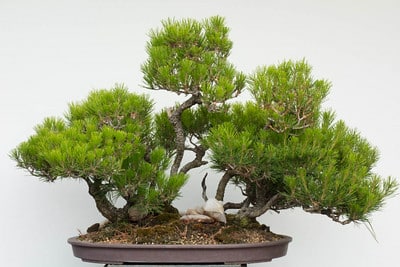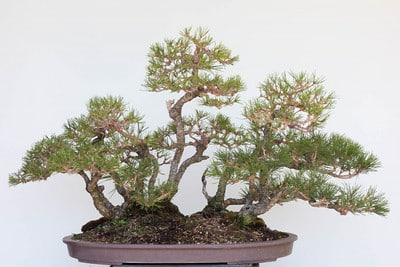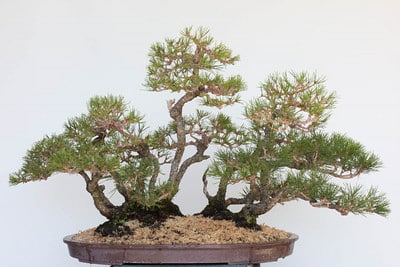If there’s a single bonsai in my garden that grows quickly, its the red pine forest below.

Red pine forest
Japanese red pines are very similar to Japanese black pines. The most common differences I notice include thinner needles and slightly reddish colored buds, though sometimes the two varieties can be hard to tell apart. This forest exhibits fairly typical characteristics of young red pines, right down to explosive growth. I tend to decandle the tree a little later than I decandle black pines of equivalent age and development, and I usually get more summer buds per branch than I do with black pines of the same age. As a result, at decandling time, there are a lot of cuts to make on this bonsai.

Red pine forest – after decandling
The tree was still fairly full after decandling as I had yet to thin out last year’s summer growth, so I did a lot of cutback while I worked, limiting summer growth to two shoots per branch. After removing all of the spring growth and extraneous shoots and needles, I added enough wire to space out the buds so there would be room for the summer buds to fill in. The moss added when the tree appeared in Bay Island Bonsai’s 14th annual exhibit had mostly disintegrated beneath fertilizer so I removed it and replaced it with shredded sphagnum moss to help retain moisture and prevent soil particles from washing away.

After cleaning the surface of the soil and applying sphagnum moss
I’ll begin fertilizing again in a few weeks and will increase the fertilizer through the end of the growing season at which time the summer shoots will be ready for thinning.
Subscribe to Indian Bonsai Art
New Posts Delivered Every Tuesday and Friday
